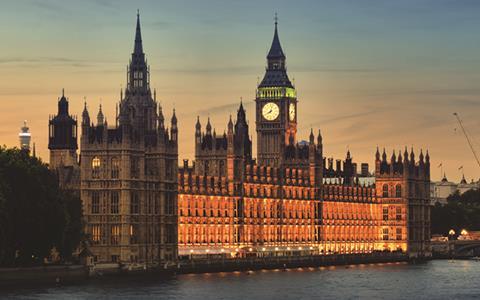Political certainty, in the sense of a government with a substantial working majority, is not the same thing as policy certainty.

The first derives from an election that saw off the nightmare scenario of a Corbyn/McDonnell administration driving the Good Ship UK towards the economic rocks – on the basis that the resulting shipwreck would be good for us.
Policy certainty is another matter, especially when it comes to property, construction, planning and architecture. If things were going to be easy, the policies would already be in place. In general, this is not the case, suggesting that a bold new administration could do a certain amount of blue-sky thinking.
This could result in useful initiatives, or more accurately the revival of good ideas that have fallen by the wayside in recent administrations. It could also mean an acknowledgement that policies and attitudes pursued by people like Michael Heseltine and John Prescott were not all wrong, especially as they stemmed from a desire to make things better.
It looks like the environmental brigade has seen off what might have underwritten the economic revival of the north, that is, cheap energy from fracking, which might have produced wealth comparable to that of coal-mining in the 19th century.
However, with a PM with a Heseltine-esque approach to infrastructure at the helm, the likelihood of transport infrastructure investment must have increased – especially given the pledges made in the aftermath of an election where Tories managed to secure significant numbers of northern seats.

One Nation Conservatism, as represented most obviously by Harold Macmillan post-1945, also implies state support for, rather than a laissez-faire attitude to, housing provision. While private housebuilding was encouraged, it was also the case that public housing provision increased significantly when ‘Super-Mac’ was housing minister before his promotion to 10 Downing Street.
It is true that housing shortages are more of a London issue than elsewhere, but it is nevertheless the case that a government committed to demonstrating it is interested in all the people, not just inhabitants of the capital, will pursue housing policies aimed at everyone, not just the children of the metropolitan elites.
Burying bad news
In this light, the policy initiative already in the pipeline, that is to say the ‘reform’ of the planning system (yet again), looks, at best, irrelevant. It is housing policies that need attention.
How clever of the Old Oak and Park Royal Development Corporation to announce its latest thinking on the morning of Friday 13 December, when most minds were taking in the implications of Boris Johnson confounding his multiple critics.
The OPDC’s latest thinking could be summarised thus: “Very sorry, we have made a terrible mess of our plans to date; we have stopped imagining that we are going to put Cargiant out of business by compulsory purchase of its land; we have given up on £250m of government funding to promote our ill-founded housing development plan; and we are starting again.” It didn’t quite put it like this, blaming the whole sorry saga on rising industrial land prices in west London.
Oh well. Redevelopment around Willesden Junction is important strategically for London. Let’s hope the relatively new top team at the OPDC can get a firmer grip, review the past with a certain amount of humility and develop a stronger relationship between a Labour GLA and a Tory government. Boris, after all, created the OPDC in the first place.
Paul Finch is a programme director of the World Architecture Festival





























No comments yet